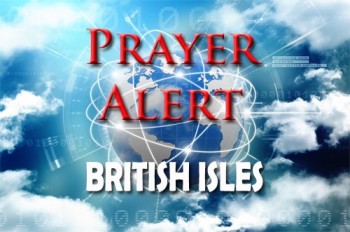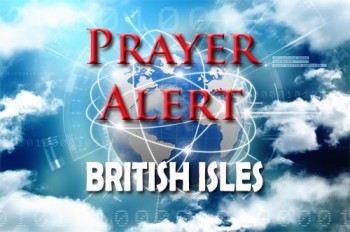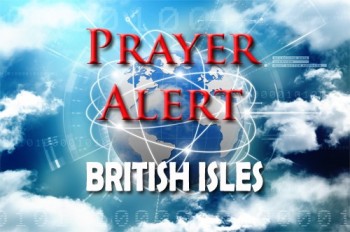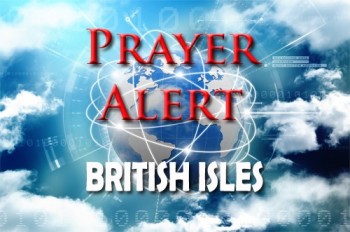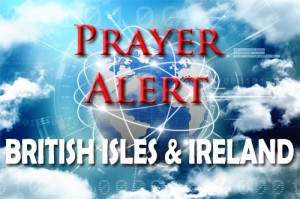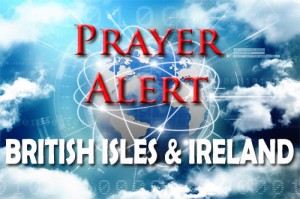Displaying items by tag: finance
NHS ‘under similar pressure to January’
In a letter to Boris Johnson, cabinet ministers and the NHS England chief executive, the NHS Providers group says demands on staff are rising. Many chief executives are saying that the overall level of pressure they are now experiencing is different in shape, but similar in scale to what they saw in January when the NHS was under the greatest pressure in a generation. The letter calls on the Government to make ‘the right decisions’ as it finalises NHS funding for the second half of the financial year. Hospital pressures include going ‘full speed’ to address the backlog of mental health and community care services, and record demands for urgent and emergency care. There are growing hospital admissions for Covid, along with more than a million cases of long Covid and people suffering poor mental health. Hospitals are currently running enhanced infection control measures, leading to ‘significant loss of capacity’, with staff self-isolating or suffering stress and mental health issues.
EU agrees on a plan to save itself
EU leaders have agreed on a 750 billion euro coronavirus relief package, both in loans and grants. A major accomplishment: for the first time all 27 members agreed to share the financial burden to rescue some of its members. However this is just the first step on a long road to recovery. The fine print is thorny. Any individual member state can delay disbursement of funds to another member by questioning the recipient's spending plans. For example, this would allow a country to put a temporary hold on funds for another if the Hague has a bone to pick about overspending. Not a veto, but it could delay the release of much-needed funds and pit countries against each other. Also money will not be released until 2022. So if Italy and Spain continue borrowing to pay for their domestic rescue plans, they will owe much more a year from now and be in a worse financial position to respond to any second coronavirus wave.
Italy’s challenge, and cashless society
The challenge: Italy is facing its worst recession since the Second World War. To heal the decimated economy, it has no choice but to revive its tourism industry. As of today, European travellers are once again welcomed in, restrictions on movement between regions have been lifted, and international flights are set to resume in three major cities. Italy wants visitors, but it is unclear if visitors want Italy. Also, people have long hoarded banknotes in uncertain times, but the pandemic may prove an exception. Passed from person to person, cash is making people nervous. Across Europe, shopkeepers and customers are looking for ways to limit the chances of infection, prioritising card payments. Analysts see this rapid shift as a huge step towards a wholly cashless society.
Covid-19 fraudsters
Everyone has movement restrictions, and millions are working from home or have stopped working. As a response, the Chancellor of the Exchequer has announced huge packages of financial assistance in grants for the self-employed and paying wages for employed workers. Yet in announcing his help for self-employed, he acknowledges the scheme could facilitate opportunities for perpetrating fraud. He recognises that whatever the health of an economy - or the financial standing of an individual or a company - there will always be those looking to make fraudulent gains. Coronavirus has produced new openings for committing fraud, which is like a virus: it will spread and cause the maximum amount of harm unless the right precautions are taken.
Barclays - climate plan
Pressure group ShareAction has called on Barclays Bank to ‘phase out’ financing energy companies that are not aligned with the Paris climate accord. Barclays is close to securing qualified investor support for a new action plan on climate change, as they move away from relationships with carbon-polluting companies. In May their shareholders will have the chance to vote on the proposal at their annual general meeting. City sources said that Barclays' alternative resolution would commit it to helping ‘transition’ energy companies towards the Paris goals. One investor briefed on the plan described it as a ‘landmark’ for a major lender. We can pray that other banks will commit to measures that will cause polluting companies to achieve Paris compliance across lending measures, underwriting, corporate finance and all forms of project financing.
A deal is agreed
The Eurozone is in a deep recession. Unemployment figures are spiking to unprecedented highs and debt levels are soaring. It is an economic crisis on a scale not seen since the Second World War, or the Great Depression. Onlookers have watched individual countries retreat into national self-righteousness and mutual finger-pointing in a very un-united attitude that threatens the survival of the EU and will not solve anything. Then, finally, after weeks of wrangling, EU finance ministers managed to reach a deal - to the relief of most. Let us pray that the €500 billion package to help countries hardest hit by the pandemic will succeed in implementing an economic plan. See also
Budget with an eye on coronavirus
Chancellor Rishi Sunak delivered his first Budget in the House of Commons on 11 March. Parts of it appear to have been written at the last minute as coronavirus spreads across the nation. His spending plans include a £5bn emergency response to support the NHS and other public services with statutory sick pay for all who choose to self-isolate, even if they don't have virus symptoms. Benefit claimants will be able to claim sick pay on day one, not after a week, and there is a £500m hardship fund allocated to help vulnerable people. To try to save businesses from liquidation, firms with fewer than 250 staff will be refunded for sick pay payments for two weeks, and small firms will be able to access ‘business interruption’ loans of up to £1.2m. Business rates will be abolished for firms in the retail, leisure and hospitality sectors with a rateable value of less than £51,000.
EU: misspending in the millions
The EU squandered millions on overseas projects last year, including paying for broken toilets in Haiti and providing computer systems for empty offices in Jamaica. Auditors examined the EU’s £138 billion annual budget. The budget for aid and overseas projects was around £720 million in total: 3% of this was misspent on items such as a Mozambican radio drama series. They found that a further £4 billion was misspent because the EU Commission had sometimes ‘assumed’ that cash was spent within the rules. The UK pays £9 billion to the EU annually, and the bloc is demanding £39 billion in a Brexit divorce bill - even if there is no deal. Tory MP Nigel Evans said, ‘While we’re in the EU, we have little control over how this money is spent. In fact, it looks as if no-one is in control.’ 2.6% of the EU’s total budget was misspent last year, up from 2.4% from the year before.
Education spending
Children from richer families used to benefit much more from public spending on education than those from poorer backgrounds. However, a report from the Institute of Fiscal Studies, based on research in state-funded schools between 2003 and 2010, notes a substantial shift in this pattern. Due to new policies such as ‘pupil premium’, which aims to help disadvantaged pupils of all abilities in publicly-funded schools to perform better, education spending is now more likely to be skewed towards poorer pupils. Also, the socio-economic gaps in higher education have narrowed. The report concludes, ‘The realistic evidence suggests that focusing more education spending on poorer pupils should lead to substantial improvements in their life chances’.
Financial education in primary schools
The Just Finance Foundation published a report on the impact of its LifeSavers programme in 30 primary schools across England. It said, ‘Primary school pupils should receive compulsory lessons on how to manage money in response to growing levels of financial insecurity and problem debt in the UK. Learning where money comes from, when to spend, and how to save is vital to children’s ability to navigate adult life and should be a mandatory part of personal, social, health, and economic education in primary schools.’ Currently 40% of UK adults have less than £100 in savings. Difficulties managing money are becoming a mainstream issue. LifeSavers equips children to manage money wisely now and in the future, providing training, support and resources which aid teachers to deliver financial education to all year-groups. It helps set up and manage school savings clubs, and encourages parental and wider community engagement. It says today’s children face the most challenging and complex financial landscape of a generation.
